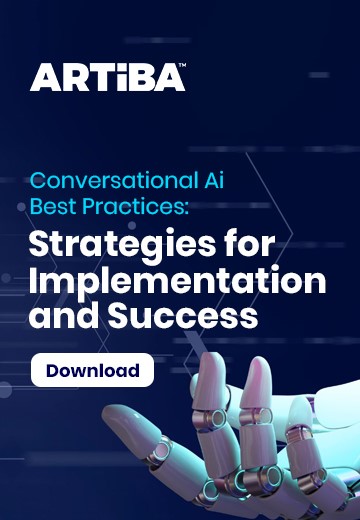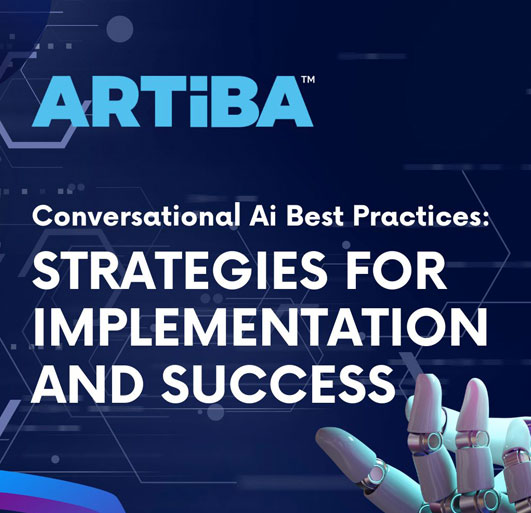How Quantum Computing and Ai Will Shape the Future Together?

Two exponentially powerful technologies - quantum computing and artificial intelligence - are rapidly converging to reshape industries, catalyze innovation, and solve intractable problems at unprecedented scales. Quantum Computing in Ai unshackles processing power through quantum mechanical phenomena, while Ai brings unprecedented intelligence through algorithms that learn. Together, they open doorways to expand machine cognition into uncharted frontiers.
In this article, we dive into quantum computing and Ai, astounding real-world applications across sectors, recent hardware and algorithmic advances bringing this vision closer to reality, and how developers and enterprises can prepare for the quantum Ai era ahead.
Quantum Computing - The Next Evolution in Raw Computing Power
Quantum computing represents the next stage in raw computing power. Unlike classical computers limited to binary bits of 1s or 0s, quantum computers leverage quantum bits (qubits) that can represent multiple states or values simultaneously. This property, known as superposition, allows quantum computers to evaluate multitudes of solutions concurrently at lightning speeds compared to traditional systems.
For instance, 300 qubits simultaneously evaluating combinations could represent more state permutations than there are atoms in the observable universe! And entanglement further amplifies this by allowing qubits to influence each other when physically separated. Such exponential parallelism gives quantum computers problem-solving prowess exceedingly even today's most powerful supercomputers.
However, quantum computing currently faces limitations like low qubit counts, high error rates, and the fragility of quantum states that constrain real-world applications - for now. Leading hardware players like IBM, Google, Microsoft, and newcomers including startup QuEra actively push boundaries of stability while upgrading quantum volume and qubit counts annually. 2025 could witness milestones like IBM's planned 4,000+ qubit system coming online. Sustaining such exponential growth puts universal fault-tolerant quantum computers within plausible reach later this decade.
As hardware matures in this trajectory, quantum computational power is poised to transform every sphere of computing - especially natural language processing in Ai.
The Potent Quantum Ai Alliance
Ai has achieved groundbreaking success through algorithms that learn - mastering domains from computer vision and medicine to scientific discovery and creative arts. However, complex deep neural network models put intense demand on computational capacity, often stretching classical hardware limitations during training.
This is where quantum computers offer game-changing symbiosis through specialized speed and scale advantages:
-
Quantum Machine Learning: Quantum processors tackle optimization problems with sophistication and speed unmatched by classical hardware. This makes them supremely adept at efficiently training Ai models using exponentially fewer examples - especially pertinent for data-scarce domains. Quantum neural networks could someday also radically expand cognitive frontiers.
-
Molecular Simulation: Modeling molecular interactions lies at the heart of chemistry R&D advances. Quantum computers can simulate reactions between atoms and molecules down to chemical processes unseen before. This could massively accelerate pharmaceutical innovations and materials discovery.
-
Climate & Weather Modeling: Hyper-accurate planetary-scale climate and extreme weather predictions enable vastly better preparedness and policy decisions. But modeling fluid dynamics demands processing capacity stretched even for today's supercomputers. Quantum computers circumvent these barriers.
-
Big Data Analytics: The exponential memory capacity of quantum computing systems facilitates digesting colossal datasets quickly - a boon for data-hungry Ai algorithms to reveal strategic insights for enhanced decision making.
-
Enhanced Cybersecurity: While quantum computers pose encryption threats themselves, quantum techniques also enable developing sophisticated next-gen quantum-safe encryption ciphers designed to withstand even attacks from powerful quantum decryption algorithms.
By synergizing respective strengths, this quantum-Ai alliance promises to massively expand horizons for what is computationally achievable - with transformative real-world potential.
Quantum Ai in Action – Current Use Cases
While universal fault-tolerant quantum computers may be years away, rapid hardware and algorithmic advances have already paved inroads for quantum techniques to enhance Ai and ML applications today:
-
Generative Ai: Randomness plays a pivotal role in emerging generative Ai like text and image models. Quantum number generation adds high quality randomness for significantly sharper outputs from algorithms like DALL-E.
-
Quantum Machine Learning: Quantum machine learning techniques gaining traction include quantum reinforcement learning for decision-making in financial trading strategies. Quantum reservoir computing has also demonstrated accuracies rivaling classical methods in prediction and classification tasks.
-
Quantum Neural Networks: Quantum neuromorphic prototypes functionally mimic biological neurons at nanoscales to process information through quantum effects the way the brain uses electric signals. Quantum neuron grids process inputs simultaneously and could someday enable neural networks to learn intrinsically quantum datasets.
-
Hybrid Quantum-Classical: Major cloud providers have rolled out hybrid quantum-classical compute options that augment Ai model development using existing quantum hardware accessible over cloud. Hybrid algorithms partitioning workloads between quantum and classical systems demonstrate order-of-magnitude gains in efficiency for use cases like traffic optimization and climate modeling.
While NISQ (Noisy Intermediate Scale Quantum) computers today have limited noise thresholds and stability for advanced applications, these early successes portend immense latent potential fully unlockable upon reaching fault tolerance later this decade.
Quantum Ai - Industry Applications and Impact
Sophisticated quantum computational power integrated natively into business processes through Ai interfaces could redefine entire industries:
-
Drug Discovery: One of the most promising near-term quantum use cases. Quantum simulation reveals pharmacological insights through representing molecules and interactions with fidelity unmatched by classical hardware. Reducing pharmaceutical R&D compute times from months to hours unlocks life-saving and affordable next-gen medicines.
-
Financial Services: Quantum machine learning optimizes high-frequency algorithmic trading strategies, portfolio allocation, risk modeling, and fraud prediction at unprecedented scale. Lower latency data processing feeds dynamic analytics for calibrated split-second decision making.
-
Aviation & Aerospace: Quantum computations enable computational fluid dynamic optimizations for designing safer, faster, greener next-gen aircraft tested through Multiphysics simulations impossible via classical supercomputers. Energy-efficient aerospace engineering saves costs.
-
Oil & Gas: Exploring deposition probability patterns for undiscovered petroleum reserves becomes more accurate. Same for predicting equipment maintenance issues before occurrences through quantum reinforcement learning algorithms. This improves productivity and safety.
-
Automotive: Quantum simulations precisely mimic crash test environments for evaluating vehicle safety measures with speed and flexibility impossible otherwise. The training process for autonomous driving algorithms also becomes safer and efficient.
Across transportation, logistics and industries from micromobility to renewables, quantum infusion unlocks 10x to 100x efficiency gains - while managing the risks posed by its own disruption potential.
Quantum Computing Hardware - Recent Advances
While the promise of quantum computing has been around for decades, its physical realization has faced immense scientific barriers. Maintaining quantum superposition requires extraordinary stability and isolation with precision impossible using conventional computing hardware designs and tools.
But 2022 represented landmark moments - introducing systems that can now maintain quantum states reliably for months (instead of milliseconds). Startup PASQAL announced its 100-qubit commercial quantum computer with techniques to minimize ambient interference. QuEra's new 1,000+ qubit opening benchmarks also signal viability of systems at the scale required for quantum error correction codes to kick in for reliable large-scale computation.
Just as Ai reached its recent tipping point through the exponential increase in classical compute, sustained investments improving quantum volume factors like lower noise rates, connectivity, and growing qubit counts promise to unleash quantum advantage in coming years.
Software & Cloud - Democratization Tools for Quantum
Accessible tools allowing developers to tap into quantum without hardware expertise has been crucial for adoption growth. Microsoft introduced Q#, its domain-specific programming language for quantum in 2017. More recently, Amazon made Amazon Braket available - a development toolkit enabling creating, testing, and running quantum algorithms across simulated backends and multiple physical quantum hardware providers.
Such cloud access mechanisms continue democratizing development recently beyond expert research institutions into enterprise developer teams. Industry investments like IBM establishing its new HQ-led Quantum Innovation Center in Ohio signals commitment toward sustainable quantum and quantum-Ai ecosystems. Hybrid quantum-classical services also allow augmenting classical systems using quantum to maximize business impact as hardware matures.
Preparing for the Quantum Future
Quantum computing promises to reshape every sphere of Ai across industries and society. But smooth adoption relies on enterprises proactively upskilling talent. Initiatives like Fortune 500 training programs build organizational readiness. Consulting quantum specialists provides capacity-building expertise for the transition.
For developers seeking firsthand exposure, quantum software development kits and cloud programming environments smooth skill barriers to entering this fascinating arena early. Resources from ecosystem players like Amazon Braket, IBM Quantum, Rigetti etc. provide learning sandboxes to experiment hands-on with quantum-enhanced algorithms.
Attending industry conferences, researching developments, and piloting applications mourns strategic advantage. Such inroads chart pathways for transformative innovation on the quantum Ai frontier as pioneering leaders reimagine business models that tap into the unprecedented scale of possibilities soon opening through quantum's exponential might merged natively with Ai's brilliance.






